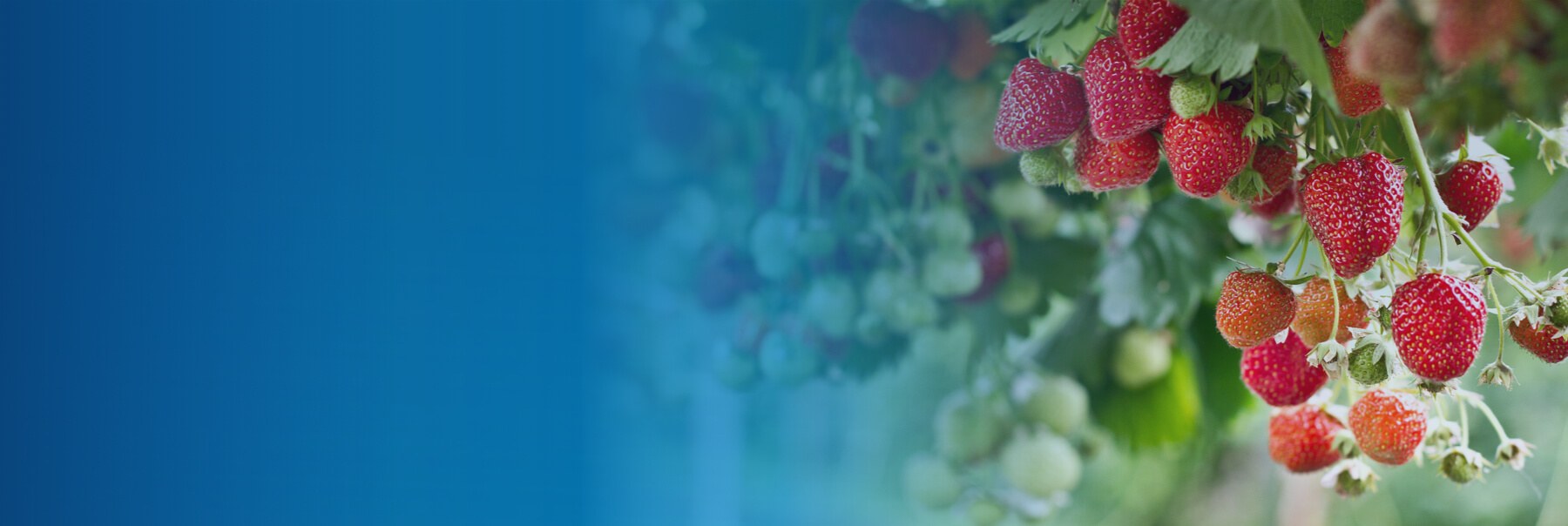News 📰 Labour’s Employment Rights Bill has been released The Labour...
James Lloyd-Jones is the Founder and CEO of the Jones Food Company (JFC), which launched in 2017. In less than five years, he has scaled the business to a phenomenal level; leading the company to launch Europe’s largest vertical farm in Scunthorpe, opening an Innovation Centre in Bristol as a dedicated R&D space, and his team are now building the world’s largest farm in Lydney, Gloucestershire, set to open in 2022. James is shining a light on the importance of the UK becoming more self-sufficient in terms of food production and is leading the charge for vertical farming to become a mainstream player in the fresh produce market both here and worldwide.
One business success
- Our unmatched scale in such a relatively short amount of time is definitely one of our main successes. JFC is only five years old and yet we own and operate Europe’s largest vertical farming site (JFC1) and are currently building the world’s largest vertical farm (JFC2) in Lydney, Gloucestershire. Having only produced our first harvest in winter 2018, JFC1 now supplies more than 30% of the UK’s fresh-cut basil, producing more than 500kg harvested every day. Our clients are the UK’s major national retailers and we are in more than 3,000 stores across the UK including the majority of leading supermarkets, and even high-end restaurateurs are also using our products due to the taste and quality. The quick growth of JFC has proven that vertical farms can be commercially successful at scale, and we are confident that our methods can become a major player in UK food production in the years to come not only for leafy greens and herbs but for soft fruits, cut flowers and even vegetables.
Two challenges for the sector
- A challenge for the sector is one that many industries are facing; energy costs. There’s no avoiding the fact that this is something we have to be conscious of and take into account for every area of the business. That said, early on we focused on how we could lower our energy costs, and whilst everyone is experiencing a price spike, the actual cost of generation from renewable assets hasn’t increased by a significant amount in our experience. Our view has always been to source long-term energy supply using sustainable methods, so for example we have a solar agreement for JFC1 and will look to replicate this at JFC2. JFC operates on a completely sustainable business model and by optimising macro HVAC systems the team has reduced the company’s energy usage by 30% in the past year alone. It’s about being nimble to the ever-changing situation, but JFC was born with a longer-term view on ways to minimise energy output, so it’s not a new challenge to us.
- Another aspect of business that is providing a challenge to the industry is the lead time for materials, which is affecting not only us but many businesses working within the tech/agricultural industry. There are many situations in the current climate that are completely out of our control - Brexit, Covid-19 and the situation in Ukraine have all highlighted the fragility of both our food and production supply chain. For example, the LED lights we use in our vertical farms are sourced from China and there have been delays in sourcing these, causing wider knock-on effects. Because of this, we need to be really savvy and constantly think one step ahead to keep up with the market demand.
Three forecasts for the sector
- As previously mentioned, the energy crisis is a current challenge within many industries, but we feel very prepared with regard to being a fully sustainable operation. Our prediction is that consumers will demand more environmentally friendly products in terms of what they put on their plates. JFC grows everything through renewable energy and in 2022, we launched a partnership with a major renewable energy infrastructure provider which has allowed our operations team to switch to renewable energy for all the growing processes at the original site. In order to ensure the organisation complies with a wholly renewable energy supply, JFC stores all unused energy that has been generated from solar in the onsite battery storage.
- Another forecast for the sector is the diversification of produce sourced through vertical farming methods. We are at the forefront of a whole new sector of farming, building on Britain’s centuries-long role as an innovator, and technology is 100% integral to what we do. For example, our recently launched Innovation Centre will be testing new crops so that vertical farming can become a major player in the food production industry in the coming years. Right now, our R&D team is working hard to diversify our crop range. For example, we recently announced a partnership with leading trade body Berry Gardens to trial growing strawberries, with the first crop expected to be on shelves in winter 2023. This is truly the beginning of our product diversity and we won’t stop at berries - we want to be growing cut flowers, vegetables and even vines on a commercial scale in the coming years.
- Finally, we believe that the demand for more transparency in relation to the consumption process will only increase. Consumers are currently very devolved from this, but there are a lot of young people who will make more active and environmentally thoughtful decisions on food purchases, and taking a more ‘plant-based’ approach is a quickly increasing trend in terms of market share. As this generation gets older, this thought process will become even more prevalent. The younger generations are ever more aware of their purchases and what they mean to the planet, and this is also true for fresh produce. We want to be in a place where there’s really clear communication for the consumer on where food has come from and how it has been grown.
August 2022
